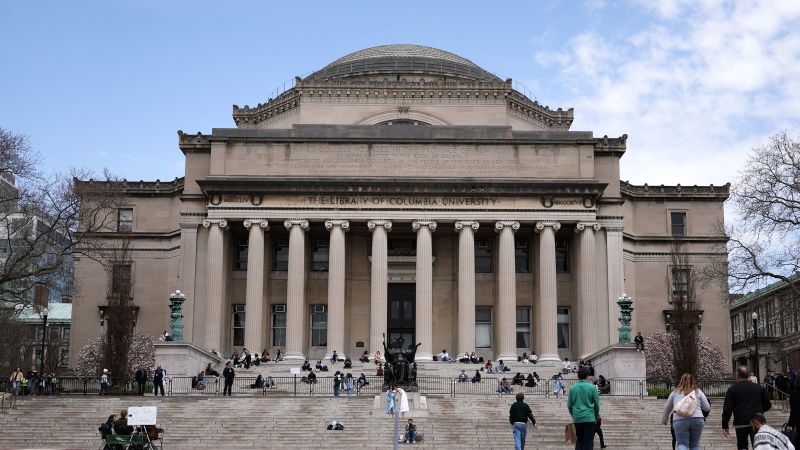Columbia University has agreed to pay $9 million to settle a class-action lawsuit filed by students who accused the institution of submitting false data to enhance its position in the U.S. News & World Report’s prestigious college rankings. This preliminary settlement, which awaits judicial approval, was filed in a Manhattan federal court on Monday.
The lawsuit alleged that Columbia University had artificially boosted its U.S. News ranking for undergraduate programs, reaching the No. 2 spot in 2022, by consistently providing inaccurate data. Key among these misrepresentations was the claim that 83% of its classes had fewer than 20 students. Students argued that these inflated figures misled them into enrolling and justified higher tuition fees.
Details of the Settlement
The settlement encompasses approximately 22,000 undergraduate students from Columbia College, Columbia Engineering, and Columbia’s School of General Studies, covering the period from the fall of 2016 to the spring of 2022. Lawyers representing the students described the agreement as fair, reasonable, and adequate. Although Columbia denied any wrongdoing, the university expressed regret over past reporting deficiencies and has since engaged an independent advisory firm to ensure the accuracy of data provided to prospective students.
The legal proceedings were initiated in July 2022 after a report by Columbia math professor Michael Thaddeus questioned the validity of the data supporting the university’s high ranking. Following this revelation, Columbia’s ranking plummeted to No. 18 by September of the same year.
Impact on University Rankings
In a significant move, Columbia announced in June 2023 that its undergraduate schools would no longer participate in the U.S. News rankings. The university cited the rankings’ disproportionate influence on prospective students and argued that the true quality of education cannot be distilled into a series of data points. This decision aligns with similar actions taken by other prestigious institutions, including Harvard and Yale, which have also ceased submitting data for certain programs.
U.S. News & World Report, known for its comprehensive rankings of both undergraduate and graduate schools, has faced criticism over its methodologies and the weight it places on certain metrics. The controversy surrounding Columbia’s rankings has reignited debates about the transparency and reliability of such rankings in assessing educational quality.
Legal and Financial Implications
Lawyers representing the Columbia students intend to request up to one-third of the settlement amount as legal fees, which would leave approximately $6 million for distribution among the affected students. The settlement represents a significant financial commitment by Columbia, reflecting the broader implications of the lawsuit on the university’s reputation and financial planning.
“Columbia deeply regrets deficiencies in prior reporting,” the university stated, emphasizing its commitment to transparency and accuracy in future data submissions.
The case has prompted a broader discussion about the role of rankings in higher education and the pressures institutions face to maintain or improve their standings. As universities increasingly scrutinize the impact of rankings on their reputations and student recruitment, the landscape of higher education assessment may be poised for change.
Looking Ahead
The settlement and Columbia’s decision to withdraw from the U.S. News rankings could signal a shift in how universities approach rankings and data transparency. As the conversation around educational quality continues to evolve, institutions may seek alternative ways to demonstrate their value to prospective students and stakeholders.
Meanwhile, the outcome of this settlement may encourage other universities to reassess their participation in rankings and the accuracy of the data they provide. The case underscores the importance of integrity and transparency in higher education, as students and parents increasingly demand accountability and value for their investment in education.
As the settlement awaits final approval, the higher education community will be watching closely to see how this case influences future practices and policies regarding college rankings and data reporting.
